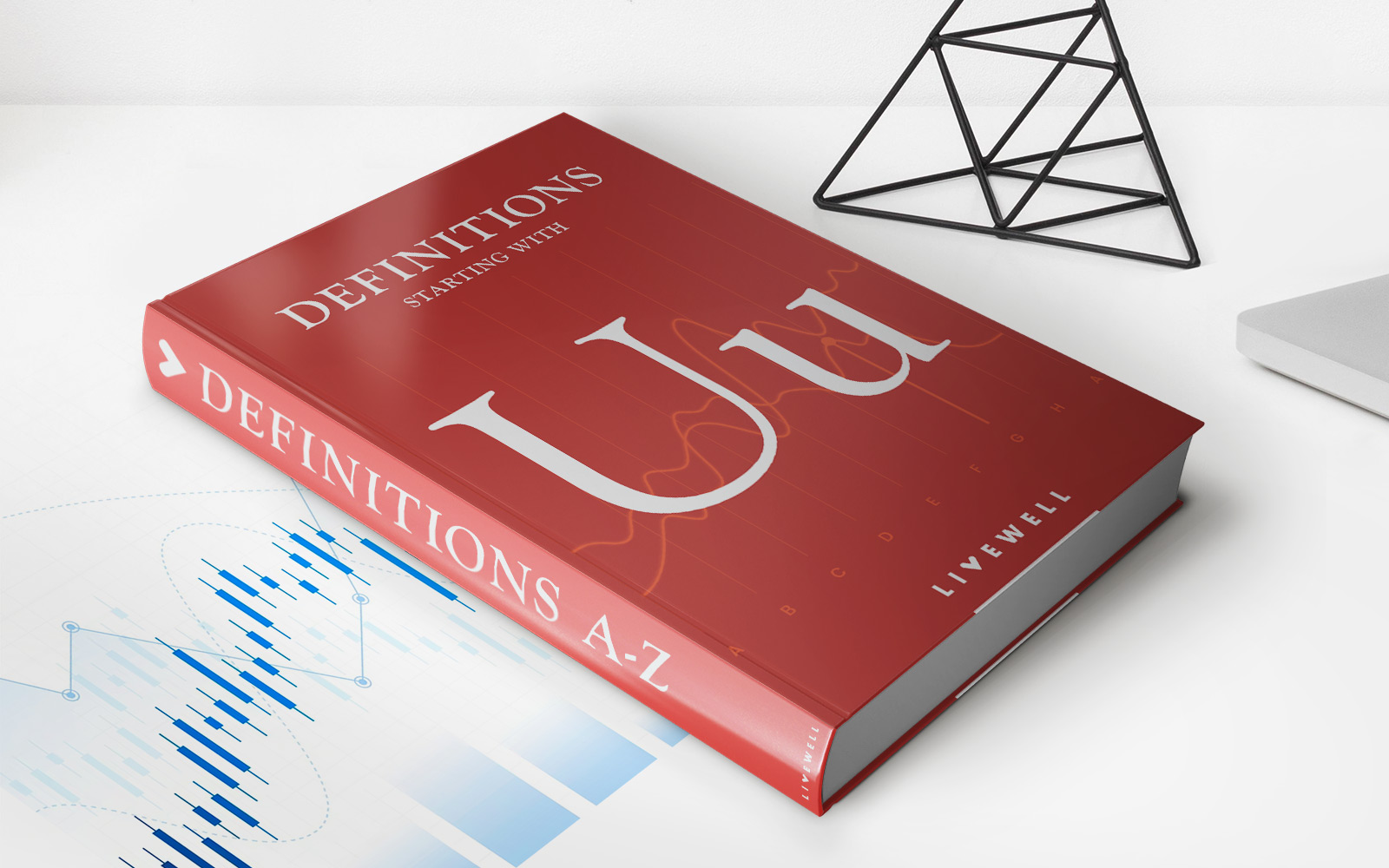

Finance
Who Pays Title Insurance Cost?
Modified: February 21, 2024
Learn who is responsible for paying the cost of title insurance and how it impacts your finances. Get the answers you need now.
(Many of the links in this article redirect to a specific reviewed product. Your purchase of these products through affiliate links helps to generate commission for LiveWell, at no extra cost. Learn more)
Table of Contents
- Introduction
- What is Title Insurance?
- Why is Title Insurance Necessary?
- Who is Responsible for Paying the Title Insurance Cost?
- Title Insurance Cost for Buyers
- Title Insurance Cost for Sellers
- Factors Affecting Title Insurance Cost
- How is Title Insurance Cost Calculated?
- Negotiating Title Insurance Cost
- Conclusion
Introduction
When it comes to buying or selling a property, one of the most crucial steps in the process is ensuring that the title is clear and free from any encumbrances. Title insurance plays a vital role in protecting both buyers and sellers from potential financial losses arising from title defects or disputes.
But who exactly is responsible for paying the title insurance cost? The answer to this question can vary depending on several factors, including local customs, negotiation between the parties involved, and the terms of the real estate transaction.
In this article, we will delve into the topic of title insurance and explore in detail who bears the cost of title insurance in different scenarios. We’ll also discuss the factors that can influence the cost of title insurance and provide insights on how to negotiate for a fair and reasonable premium.
Whether you are a prospective homebuyer, a current homeowner, or a real estate professional, understanding the nuances of title insurance and its associated costs is essential. So, let’s begin by exploring what exactly title insurance is and why it is necessary.
What is Title Insurance?
Title insurance is a type of insurance policy that provides protection against financial losses arising from defects in the title or ownership of a property. Unlike other types of insurance that focus on future events, such as accidents or natural disasters, title insurance safeguards against issues that have occurred in the past.
When you purchase a property, the seller transfers ownership to you through a legal document called a deed. The title represents your legal right to own and possess the property. However, there are various hidden risks and potential issues that could arise with the title, making title insurance a crucial safeguard.
These risks may include:
- Fraud or forgery in the chain of title
- Missing or improperly recorded documents
- Undisclosed heirs or previous owners with claim to the property
- Errors or inconsistencies in public records
- Liens or encumbrances, such as unpaid taxes or mortgages
- Boundary disputes or zoning violations
If any of these issues surface after you have purchased the property, it could result in significant financial losses or even the loss of your ownership rights. Title insurance provides protection and coverage for these types of risks, giving you peace of mind and financial security.
It is important to note that there are two types of title insurance policies:
- Owner’s title insurance: This policy protects the property buyer and is typically paid for by the buyer during the closing process. It remains in effect as long as you own the property.
- Lender’s title insurance: This policy protects the lender (e.g., mortgage lender) and is typically required if you’re getting a mortgage loan. The cost is typically borne by the borrower and is a one-time fee paid at closing.
Now that we understand what title insurance is and its importance, let’s explore who is responsible for paying the title insurance cost in different scenarios.
Why is Title Insurance Necessary?
When it comes to buying real estate, investing in a property, or obtaining a mortgage, having clear and marketable title is crucial. However, despite thorough due diligence, title defects and issues can arise, posing significant risks and financial implications.
That’s where title insurance comes into play. Here are a few reasons why title insurance is necessary:
- Protection against financial loss: Title insurance protects buyers and lenders from financial losses arising from various title issues, such as errors in public records, undisclosed liens, or forged documents. If any of these defects or discrepancies are discovered after the property purchase, the title insurance policy provides coverage for the costs associated with addressing these issues.
- Peace of mind: Purchasing real estate can be an expensive and complex process. Title insurance offers peace of mind to both buyers and lenders, knowing that there is financial protection in case of unforeseen title issues.
- Clear ownership rights: By conducting a thorough title search and issuing a title insurance policy, the title company ensures that the buyer has a clear, marketable, and unencumbered title. This gives the buyer confidence in their ownership rights and helps mitigate any potential future disputes or challenges to their ownership.
- Required by lenders: Lenders typically require a lender’s title insurance policy to protect their investment in case of title defects. This requirement is often a standard part of the mortgage process and helps safeguard the lender’s interests.
- Transferability: Title insurance policies are usually transferable, meaning that if you sell your property, the new owner can benefit from the existing title insurance policy, providing them with the same protection and peace of mind.
It is important to note that title insurance does not prevent title issues from occurring; rather, it provides financial protection and coverage if they do arise. The title company conducts a thorough title search and examination before issuing a policy, but there can still be hidden title defects that are unknown or unsearchable at the time of the transaction.
With the understanding of why title insurance is necessary, let’s move on to discussing who is responsible for paying the title insurance cost in a real estate transaction.
Who is Responsible for Paying the Title Insurance Cost?
When it comes to determining who pays for title insurance, the responsibility can vary depending on the location and the terms of the real estate transaction. In some cases, it is customary for the buyer to pay for both the owner’s and lender’s title insurance policies. In other instances, the costs may be negotiable between the parties involved.
Here are some common scenarios regarding the payment of title insurance costs:
- Buyer pays for both policies: In many real estate transactions, it is customary for the buyer to bear the cost of both the owner’s and lender’s title insurance policies. The buyer’s policy protects their interests as the property owner, while the lender’s policy safeguards the lender’s investment.
- Seller pays for owner’s policy, buyer pays for lender’s policy: In some cases, the seller may offer to pay for the buyer’s owner’s title insurance policy as an incentive or negotiation point during the sale. However, the buyer is typically responsible for purchasing the lender’s policy to protect the lender’s interests.
- Seller pays for both policies: In rare cases, the seller may choose to cover the cost of both the owner’s and lender’s title insurance policies. This can be seen as a seller concession or a way to attract potential buyers.
- Split payment: In certain situations, the parties involved may agree to split the title insurance costs. For example, the buyer may agree to pay for the owner’s policy, while the seller covers the lender’s policy.
It is important to note that while who pays for title insurance may vary, the actual cost of the policies is determined by several factors, including the purchase price of the property and the amount of the loan (if applicable). The cost can also be influenced by local regulations, market conditions, and the title insurance company selected.
Keep in mind that in some jurisdictions, the party responsible for paying the title insurance cost may be dictated by local customs or state laws. It is always recommended to consult with a real estate attorney or a trusted professional to understand the specific requirements and practices in your area.
Now that we have discussed who may be responsible for paying the title insurance cost, let’s explore the typical costs associated with title insurance for buyers and sellers.
Title Insurance Cost for Buyers
As a buyer, purchasing title insurance is an essential step in protecting your investment in a property. The cost of title insurance for buyers can vary based on several factors, including the purchase price of the property and the amount of the loan (if applicable). It is important to note that these costs may also differ between different states and title insurance companies.
The buyer’s title insurance policy, also known as the owner’s policy, typically covers the buyer’s interests in the property and is designed to provide financial protection against potential title defects or issues. The cost of the owner’s policy is usually a one-time premium paid at the time of closing.
The premium for the buyer’s owner’s policy is typically based on a percentage of the purchase price of the property. The percentage can vary between states and can range from 0.5% to 1% of the purchase price. For example, if you are buying a property for $300,000 and the premium rate is 0.75%, you can expect to pay $2,250 for the owner’s policy.
Additionally, some states have a regulated or standard rate for title insurance premiums, while others allow for competitive pricing. It is advisable to obtain quotes from different title insurance companies to compare costs and coverage options.
When obtaining a mortgage loan, the lender will typically require a lender’s title insurance policy to protect their investment. The cost of the lender’s policy is typically borne by the buyer and is separate from the owner’s policy. The premium for the lender’s policy is based on the loan amount and is often a one-time payment.
It is important to note that while the buyer is typically responsible for paying the title insurance costs, negotiations can take place between the buyer and the seller to determine who bears these expenses. This can be reflected in the terms of the purchase agreement.
Understanding the costs associated with title insurance for buyers allows you to budget appropriately and factor in these expenses when planning your real estate purchase or investment. Now, let’s explore the title insurance cost for sellers.
Title Insurance Cost for Sellers
As a seller, you may be wondering if you are responsible for paying any portion of the title insurance cost. Typically, the seller does not directly pay for the buyer’s title insurance policy but is responsible for covering certain title-related expenses.
The most common expense that sellers are typically responsible for is the cost of the owner’s title insurance policy. This is often referred to as the seller’s policy and is purchased by the seller to protect the buyer’s interests in the property.
The cost of the seller’s policy is determined by the purchase price of the property and is based on a percentage of the sale price. In some cases, the seller may opt to cover this expense as part of the negotiation process or as an incentive to the buyer. However, it is more common for the buyer to pay for their own owner’s policy.
In addition to the seller’s policy, the seller may also be responsible for other title-related expenses, such as:
- Title search fees: The cost of conducting a thorough title search to identify any potential issues or defects with the property’s title.
- Deed preparation fees: The cost of preparing the deed, which is the legal document that transfers the property from the seller to the buyer.
- Recording fees: The fees associated with recording the deed and other relevant documents with the appropriate government office.
- Any outstanding liens or encumbrances: If there are any outstanding liens or encumbrances on the property that need to be cleared before the sale, it is typically the seller’s responsibility to address these issues.
It is important to consult with a real estate attorney or a trusted professional to understand the specific costs and responsibilities associated with selling a property in your jurisdiction. They can guide you through the process and ensure that you are aware of any financial obligations related to title insurance and other closing expenses.
Now that we have explored the title insurance cost for both buyers and sellers, let’s dive into the factors that can influence the cost of title insurance.
Factors Affecting Title Insurance Cost
The cost of title insurance can vary based on several factors. Understanding these factors can help you budget and anticipate the expenses associated with obtaining title insurance. Here are some key factors that can influence the cost:
- Purchase price of the property: The cost of title insurance is often determined as a percentage of the purchase price. A higher purchase price generally means a higher premium.
- Type of policy: The type of title insurance policy you choose, such as the owner’s policy or the lender’s policy, can affect the cost. Each policy has its own premium rate.
- Location of the property: Rates and regulations for title insurance can vary by state and even by county. Different jurisdictions may have different requirements and cost structures.
- Property type: The type of property being insured can impact the title insurance cost. Residential properties typically have different premium rates compared to commercial properties or undeveloped land.
- Loan amount (if applicable): If you are obtaining a mortgage loan, the loan amount can affect the cost of the lender’s title insurance policy. The higher the loan amount, the higher the premium.
- Additional coverage and endorsements: Depending on your specific needs or circumstances, you may require additional coverage or endorsements for your title insurance policy. These can include coverage for specific risks or additional protections, and they may come with an additional cost.
- Choice of title insurance company: Different title insurance companies may offer different rates and premium structures. It is advisable to obtain quotes from multiple providers to compare costs and coverage options.
It is important to consider these factors when budgeting for title insurance costs. While some factors, such as the purchase price, may be outside of your control, others, like the choice of title insurance company and additional coverage options, can be explored and negotiated to obtain the best value for your money.
Keep in mind that the cost of title insurance is a one-time premium paid at the time of closing. Once paid, the coverage typically remains in effect as long as you own the property and, in the case of the lender’s policy, as long as the mortgage is in effect.
Now that we have explored the factors that can influence the cost of title insurance, let’s delve into how the title insurance cost is calculated.
How is Title Insurance Cost Calculated?
The cost of title insurance is typically calculated based on several factors. While specific methods may vary between different title insurance companies and jurisdictions, here are the key elements considered in the calculation:
- Purchase price or loan amount: The purchase price of the property or the loan amount (in the case of a lender’s policy) is often one of the primary factors in determining the title insurance cost. The higher the purchase price or loan amount, the higher the premium.
- Policy type: The type of policy being issued, whether it is an owner’s policy or a lender’s policy, will affect the cost. Each type of policy has its own premium rate.
- Location of the property: Title insurance rates and regulations can vary by state and even by county. The location of the property plays a role in the calculation of the premium.
- Titling issues and risks: The title search and examination process aims to identify potential risks or issues associated with the property’s title. The complexity and potential risks uncovered during this process may impact the cost of the policy.
- Add-on coverages and endorsements: Additional coverages or endorsements may be available to enhance the policy’s protection. The cost of these add-ons will vary, and it may depend on the specific needs and requirements of the buyer.
- Choice of title insurance company: Different title insurance companies may have their own methods for determining premiums. It is advisable to obtain quotes from multiple providers to compare costs and coverage options.
Once these factors have been considered, the title insurance company will calculate the premium based on their underwriting guidelines and rates. It is essential to review the policy thoroughly to understand the coverage, exclusions, and any optional endorsements that may impact the overall cost.
It is worth noting that while title insurance premiums are a one-time cost paid at the time of closing, the policy remains in effect as long as you own the property (in the case of an owner’s policy) or as long as the mortgage is in effect (in the case of a lender’s policy).
If you have any questions about how the title insurance cost is calculated, it is recommended to consult with a title insurance professional who can provide you with specific information based on your circumstances and location.
Now that we understand how the title insurance cost is calculated, let’s explore the potential for negotiating the title insurance cost.
Negotiating Title Insurance Cost
While the title insurance cost is often determined by various factors and industry standards, there may be some room for negotiation in certain situations. Here are some strategies to consider when negotiating the title insurance cost:
- Shop around for quotes: Obtain multiple quotes from different title insurance companies. This will enable you to compare costs and coverage options, providing you with leverage during the negotiation process.
- Ask for discounts or incentives: Inquire with the title insurance company if they offer any discounts or incentives that could lower the premium. For example, they may offer a reduced rate if you purchase both the owner’s and lender’s policies from them.
- Request a rate review: Sometimes, title insurance rates can be negotiable based on the specific circumstances of the transaction. If you believe the premium is unjustifiably high, you may request a rate review to ensure that you are being charged a fair price.
- Negotiate with the seller: If you are the buyer, consider negotiating with the seller to share the cost of the title insurance. This can be done as part of the overall negotiation of the purchase agreement.
- Seek guidance from a real estate professional: Consult with a real estate agent or attorney who can provide you with insights and advice on negotiating the title insurance cost. They can leverage their knowledge and experience to help you obtain a more favorable premium.
- Consider the long-term benefits: While negotiating the title insurance cost is important, it is also crucial to consider the long-term benefits and protections that the policy provides. Balance your negotiation efforts with the need for comprehensive coverage and a reputable title insurance company.
Remember that while negotiation may be possible, there may be limitations due to regulations, market conditions, and the specific circumstances of the transaction. It is essential to approach the negotiation process with a realistic expectation and a willingness to collaborate with the other party involved.
By employing these strategies and working with professionals who have expertise in real estate transactions, you can increase your chances of negotiating a fair and reasonable title insurance cost.
With all of this information in mind, let’s summarize the key points we have covered about who pays the title insurance cost and the factors that can influence it.
Conclusion
Title insurance is a crucial safeguard for both buyers and sellers in real estate transactions. Understanding who pays the title insurance cost and the factors that influence it is essential for all parties involved. While the responsibility for paying the title insurance cost can vary, it is typically the buyer who bears this expense, including the owner’s policy and, in most cases, the lender’s policy.
The cost of title insurance is influenced by factors such as the purchase price or loan amount, policy type, location of the property, and any additional coverage or endorsements. While negotiation opportunities may exist, it is important to consider the long-term benefits and seek guidance from professionals who can provide insights into the negotiation process.
By obtaining multiple quotes, asking for discounts or incentives, and advocating for a fair premium, buyers can mitigate their costs. Sellers, on the other hand, are typically responsible for the owner’s policy cost and other related expenses.
Ultimately, title insurance provides financial protection, peace of mind, and clear ownership rights. Whether you are buying or selling a property, understanding the nuances of title insurance and its associated costs is crucial for a successful and secure real estate transaction.
Remember to consult with a real estate agent, attorney, or title insurance professional to navigate the process, understand the specific requirements in your jurisdiction, and obtain the most accurate information regarding title insurance costs.
By being well-informed and proactive, you can confidently proceed with your real estate transaction and ensure that your investment is safeguarded through the protection of title insurance.














